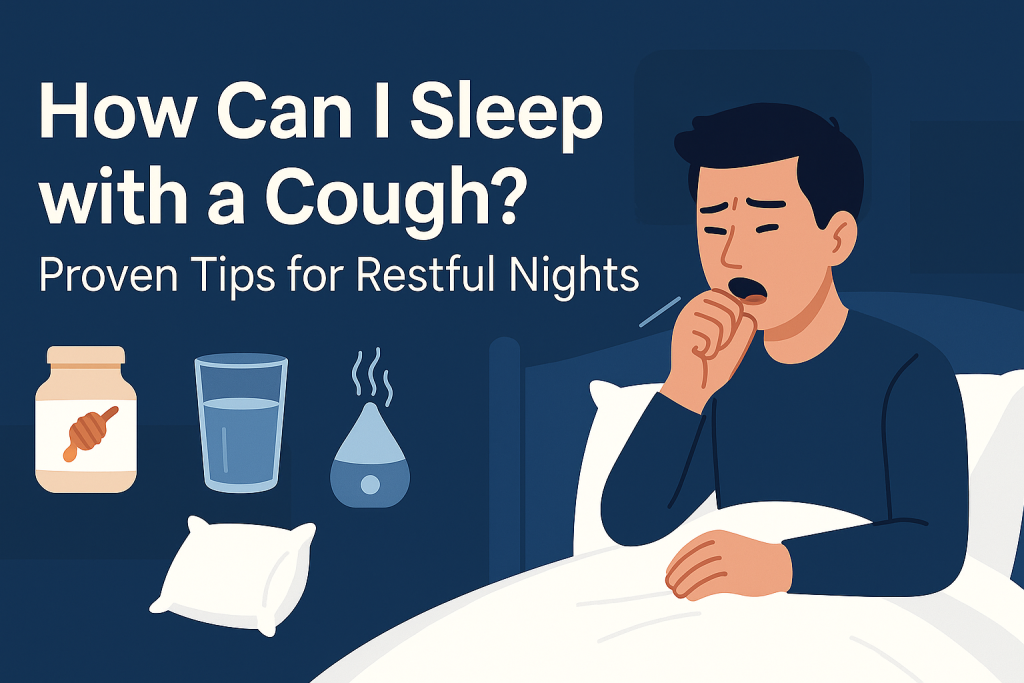Coughing at night can be extremely frustrating and disruptive, robbing you of the restful sleep your body desperately needs for recovery. Whether your cough is due to a cold, allergies, or another underlying cause, lying awake and coughing can feel like an endless cycle. Fortunately, there are many practical steps and home remedies you can try to relieve a nighttime cough and finally enjoy a peaceful night’s sleep.
Why Is Your Cough Worse at Night?
Before exploring solutions, it helps to understand why your cough may seem worse at night. Several factors contribute to increased coughing after you lie down:
- Gravity: When you recline, mucus in your throat or sinus can accumulate, triggering coughing.
- Dry Air: Bedroom air, especially during winter or with air conditioning, can dry out your throat and worsen irritation.
- Postnasal Drip: Allergies or colds cause mucus to drip down your throat, especially when lying flat, sparking cough reflexes.
- Asthma or GERD: Conditions like asthma and acid reflux tend to flare up at night, increasing cough frequency.
How Can I Sleep with a Cough? Practical Tips That Work
Here are proven strategies to reduce nighttime coughing and help you sleep better:
1. Elevate Your Head and Upper Body
Lying flat can cause mucus to pool in your throat. Prop yourself up with extra pillows or use a wedge pillow to keep your head and chest elevated. This position can minimize postnasal drip and reduce cough triggers.
2. Stay Hydrated Throughout the Day
Drinking plenty of fluids thins mucus, soothes your throat, and helps your body fight off infections. Aim for water, warm herbal teas, or clear broths. Avoid caffeine and alcohol, which can dehydrate you and worsen cough symptoms.
3. Use a Humidifier in Your Bedroom
Dry air can irritate your throat, making you cough more. Running a humidifier while you sleep adds moisture to the air, keeping your throat and nasal passages hydrated. Clean your humidifier regularly to prevent mold and bacteria buildup.
4. Try a Spoonful of Honey Before Bed
Honey has natural soothing and antimicrobial properties. Take one or two teaspoons of honey on its own, or mix it into warm herbal tea before bed. (Note: Never give honey to children under 1 year of age.)
5. Take a Warm Shower Before Bedtime
The steam from a hot shower can help loosen congestion, open airways, and calm your cough. Breathing in the moist air soothes your nasal passages and throat, which can help set you up for a better night’s sleep.
6. Use Over-the-Counter Remedies Wisely
For temporary relief, consider:
- Cough suppressants (for dry coughs)
- Expectorants (to help bring up mucus)
- Throat lozenges or cough drops
- Saline nasal sprays for congestion
Always follow label instructions and consult your doctor if you have questions about which medication is appropriate.
7. Avoid Irritants and Allergens
Remove potential cough triggers from your bedroom, such as:
- Pet dander
- Dust mites
- Cigarette smoke
- Strong perfumes or cleaning products
Wash your bedding regularly, keep pets out of your bedroom, and ensure good air circulation to reduce allergens.
8. Elevate Your Sleep Hygiene
Practicing good sleep habits can help you fall asleep faster, even when you’re not feeling your best. Try to:
- Go to bed and wake up at the same time each day
- Keep your bedroom cool, quiet, and dark
- Avoid screens and stimulating activities before bed
- Use your bedroom only for sleep and relaxation
Home Remedies to Calm a Nighttime Cough
If you prefer natural approaches, try these soothing home remedies:
- Saltwater Gargle: Dissolve half a teaspoon of salt in warm water and gargle before bed to relieve throat irritation.
- Herbal Teas: Sip chamomile, ginger, or licorice root tea for their calming, anti-inflammatory effects.
- Menthol Rubs: Apply a mentholated ointment (like Vicks) to your chest and throat to help open airways and soothe coughs.
- Turmeric Milk: Mix half a teaspoon of turmeric in warm milk, known for its anti-inflammatory and soothing properties.
When to See a Doctor About a Night Cough
While most coughs resolve on their own, some may signal an underlying problem requiring medical attention. Contact a healthcare provider if you experience:
- A cough lasting more than three weeks
- High fever or chills
- Shortness of breath or wheezing
- Chest pain
- Blood in your cough
- Unexplained weight loss
Persistent night coughs can be caused by asthma, chronic bronchitis, GERD, or even heart issues. Your doctor can help determine the cause and recommend treatment.
Frequently Asked Questions: How Can I Sleep with a Cough?
Can I take sleeping pills for cough-related insomnia?
While sleeping pills might help you fall asleep, they do not address the underlying cough and could interact with other medications. Focus on treating the cough directly and use sleep aids only under a doctor’s supervision.
Is it better to sleep sitting up when I have a cough?
Semi-upright positions can indeed reduce coughing. If lying flat increases your symptoms, try sleeping in a recliner or propped up with several pillows.
Should I avoid dairy if I’m coughing at night?
Though some believe dairy thickens mucus, research is mixed. If you notice more coughing after dairy, consider limiting it before bedtime.
What foods should I avoid before bedtime when I have a cough?
Stay away from spicy foods, citrus, or anything that might trigger acid reflux, as these can worsen coughing at night.
Summary: You Can Sleep Better, Even with a Cough
A cough doesn’t have to mean sleepless nights. By adjusting your sleeping position, controlling your environment, using remedies like honey and warm tea, and avoiding irritants, you can calm your cough and reclaim your rest. If your cough persists or is accompanied by concerning symptoms, consult your doctor to rule out more serious conditions. Prioritize self-care and give your body the best chance to heal—starting with a good night’s sleep.


